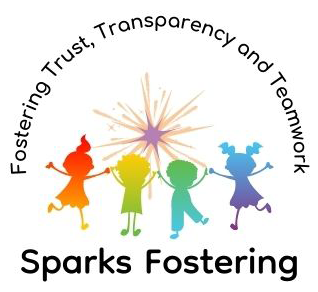Forced Marriage
What forced marriage is
Children in our care should understand that they have the right to choose who they marry, when they marry (within legal constraints) or if they marry at all.
Forced marriage is when someone faces physical pressure to marry (for example, threats, physical violence or sexual violence), or emotional and psychological pressure (e.g. if they’re made to feel like they’re bringing shame on their family).
Information about forced marriage is available on the UK government website. The information relevant to fostering is presented here.

The forced marriage unit (FMU)
The forced marriage unit is a government run department, operating within the UK and overseas (where consular assistance is provided to British nationals, including dual nationals).
The FMU operates a public helpline to provide advice and support to:
- Victims and potential victims of forced marriage.
- Professionals dealing with cases.
The FMU public helpline can help with:
- Safety advice.
- Providing assistance when an unwanted spouse is due to move to the UK (‘reluctant sponsor’ cases).
- Where possible, assistance in supporting victims held against their will overseas to return to the UK.
Contact the Forced Marriage Unit
If there are concerns about the child being involved in forced marriage, the child’s social worker will contact the forced marriage unit.
Email: [email protected]
Telephone: 020 7008 0151
From overseas: +44 (0)20 7008 0151 (Monday to Friday, 9am to 5pm)
Out of hours: 020 7008 5000
A trained professional will give free advice on what to do next. They can also help to find a safe place for the child to stay or stop a UK visa if the subject has been forced to sponsor someone.
In case of an emergency the foster carer should call 999 immediately.
Statistics
Of the cases that the FMU provided advice or support to in 2021:
- 118 cases (35%) involved victims below 18 years of age
- 120 cases (36%) involved victims aged 18-25
- 53 cases (16%) involved victims with mental capacity concerns
- 251 cases (74%) involved female victims, and 86 cases (26%) involved male victims
The ‘focus countries’ (other than the UK) with the highest number of cases in 2021 were:
- Pakistan 159 cases (47%)
- Bangladesh 32 cases (9%)
- Somalia 10 cases (3%)
- Kenya 8 cases (2%)
- Iraq 7 cases (2%)
- Romania 7 cases (2%)
The majority (72%) of victims were in the UK at the time the case was referred to the forced marriage unit.
Statistics are provided here to provide further insight into forced marriage in the UK; foster carers and social workers should be mindful that the children in their care may not be identified in the statistics; every child should be supported as an individual with unique needs.
Force marriage offences
Forced marriage is illegal in England and Wales. This includes:
- taking someone overseas to force them to marry (whether or not the forced marriage takes place)
- marrying someone who lacks the mental capacity to consent to the marriage (whether they’re pressured to or not)
Forcing someone to marry can result in a sentence of up to 7 years in prison.
Forced marriage protection orders
Where there are concerns that a forced marriage may happen, a forced marriage protection order may be requested (by the children’s social worker) via the courts.
Each order is unique and is designed to protect the subject of the order according to their individual circumstances. For example, the court may order someone to hand over the child’s passport or reveal where they are.
In an emergency, an order can be made to protect the victim immediately.
Disobeying a forced marriage protection order can result in a sentence of up to 5 years in prison.
Forced marriage abroad
Children should be advised about their right to contact the nearest British embassy for support if they are going abroad with family.
If the child or young person has already been taken abroad, the FMU should be contacted and the following information should be provided:
- where the person has gone
- when they were due back
- when you last heard from them
The FMU will contact the relevant embassy.
If they’re a British national, the embassy will try to contact the child and their family and help them get back to the UK.
Further advice and information
The forced marriage unit has produced a survivor’s handbook (click here to download), which should be read in its entirety if there are suspicions that a child is at risk of (or has already been subject to) forced marriage.
The FMU has also produced free online training, which should be completed by foster carers and social workers who are supporting someone who may be (or have been) a victim of forced marriage. The training can be accessed here.
There are also videos with case studies (click here to view): It may be useful to watch the videos with children who may be at risk of forced marriage.







